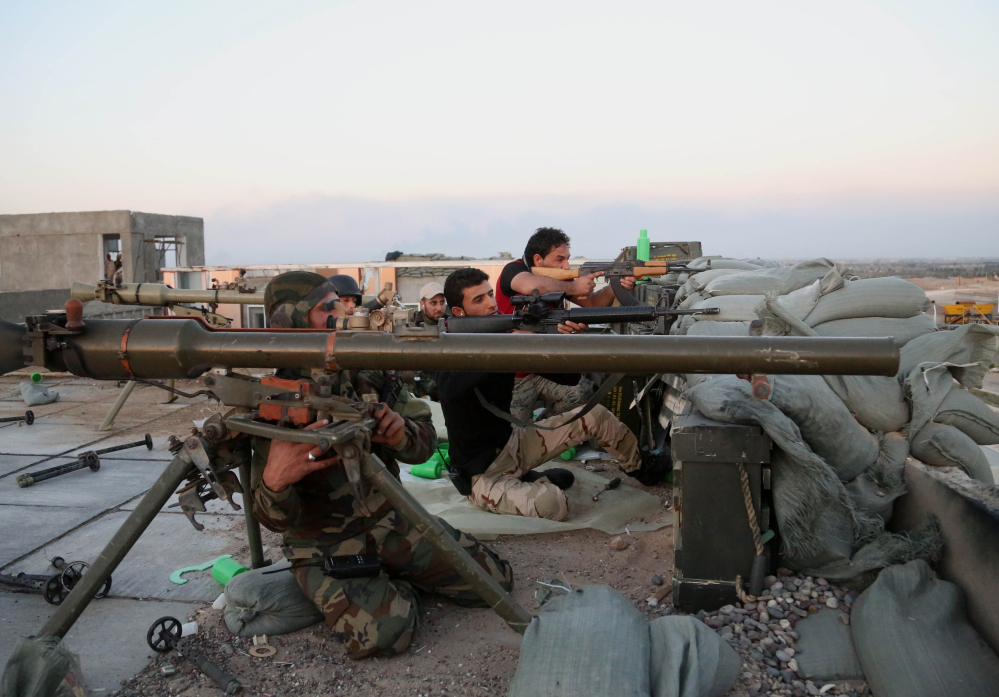ISTANBUL — The much ballyhooed Iraqi government operation to capture the central city of Tikrit from the Islamic State has stalled three weeks after it began, amid widespread reports that Shiite Muslim militias and the government are badly divided over tactics and roiled by claims that the militias have engaged in war crimes against the local Sunni population.
A two-day pause supposedly intended to give the Iraqi government time to bring up reinforcements has stretched into a week, as reports circulate that Iraqi government troops and the militias took heavier than anticipated casualties in their first efforts to dislodge Islamic State fighters. At least 1,000 militiamen died in the early days of fighting, according to some reports, roughly 5 percent of the 20,000 men the militias have committed to the operation.
Even during the pause, pro-government casualties remain high. A witness in the main government hospital at the nearby city of Samarra said that at least 100 dead or wounded fighters had been brought in over the last four days and that “bodies are everywhere” at the facility.
Difficulties with the Tikrit operation underscore how unlikely it is that the Iraqi military will be in any position soon to launch an assault to recapture Mosul, Iraq’s second largest city, which fell to the Islamic State last June.
How to proceed in Tikrit has left the government and the militias split. Iraqi officials say a full frontal assault against the Islamic State forces might succeed but would come at a heavy cost. Commanders of Iraq’s special operation forces, which would lead such a charge, are opposed to it.
The Shiite militias come to the battle with a sectarian zeal and are said to be untroubled by the prospect of casualties. Tikrit is the hometown of the late Iraqi leader Saddam Hussein, whom most Shiites detest for his repression of their sect. It was also the scene last summer of a massacre of 1,000 Shiite air force recruits at the hands of the Islamic State.
The militias’ Iranian advisers, who have also battled the Islamic State in Syria, also are said to favor an advance, whatever the cost.
Iraqi Prime Minister Haider al-Abadi, however, has asked for a better plan, apparently hesitant to unleash the militias for fear of an American backlash after reports that Shiite militias have terrorized the local Sunni population, pillaging houses and raping women.
The United States so far has declined to commit air power to the operation.
Send questions/comments to the editors.



Success. Please wait for the page to reload. If the page does not reload within 5 seconds, please refresh the page.
Enter your email and password to access comments.
Hi, to comment on stories you must . This profile is in addition to your subscription and website login.
Already have a commenting profile? .
Invalid username/password.
Please check your email to confirm and complete your registration.
Only subscribers are eligible to post comments. Please subscribe or login first for digital access. Here’s why.
Use the form below to reset your password. When you've submitted your account email, we will send an email with a reset code.